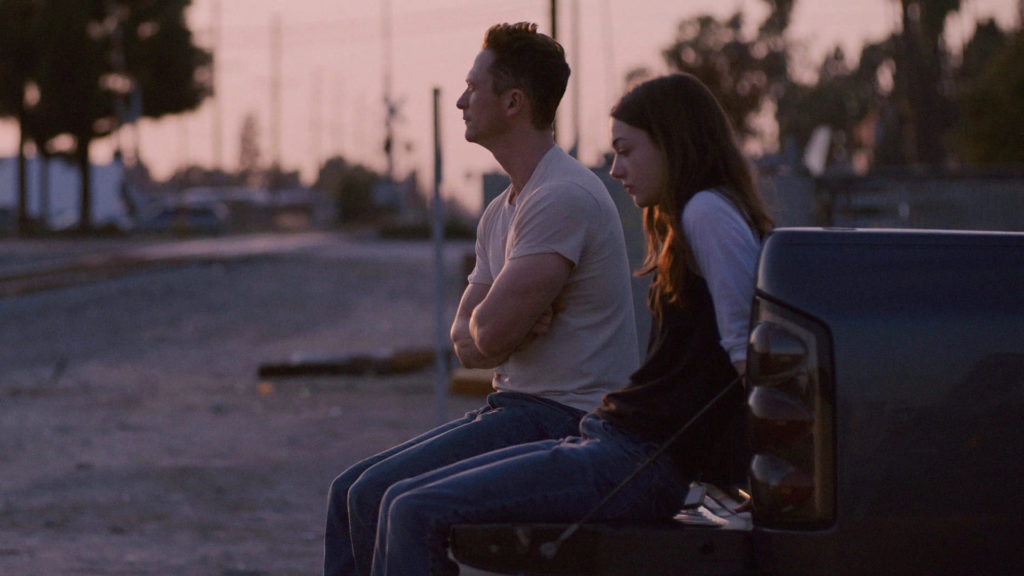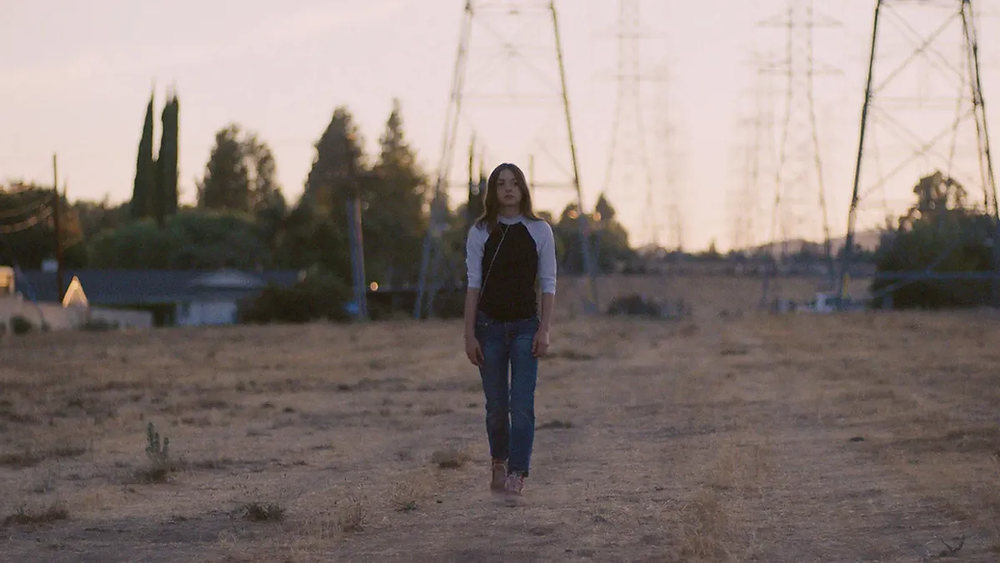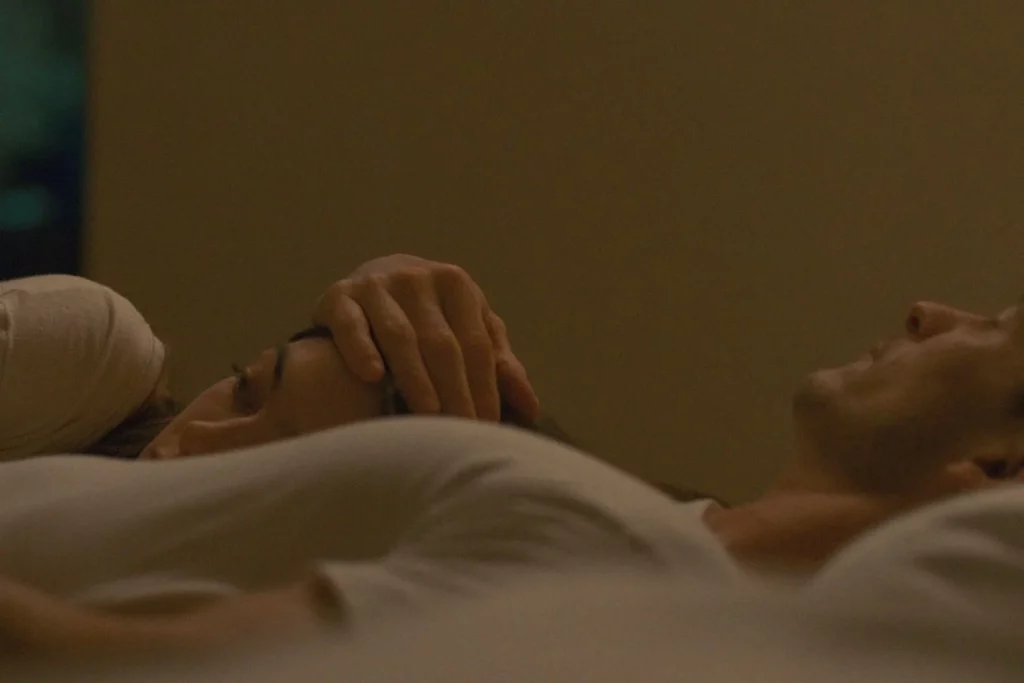Palm Trees and Power Lines is a movie that succeeds in what it sets out to do, but that doesn’t mean I enjoyed it. In fact, it made me pretty miserable.
The film is a realistic and disturbing portrayal of teenage grooming, following 17-year-old Lea (Lily McInerny) as she falls prey to the charms and manipulations of 34-year-old Tom (Jonathan Tucker). The film is a linear and relentless escalation of red flags and coercion, until it reaches a brutal point of no return.

Director and writer Jamie Dack does an impressive job of putting us in Lea’s shoes, making us feel her confusion, loneliness, and desperation. The film never feels exploitative or sensationalized, but rather honest and raw. The performances by McInerny and Tucker are quite good, making the characters feel real even as they’re fairly flat.
But the film is also a one-note exercise in dread. It offers no surprises, no insights, no relief. It’s a predictable and depressing journey into a real-life horror. It’s so relentless in its narrative focus it verges into the didactic. Tom, in particular, is less of a character and more of a plot device: this is what real predators look like.

I understand that the film’s intention is to raise awareness and empathy for the victims of grooming, and I respect Dack’s skill and vision in executing this. But it’s just a slog of misery. I don’t mind challenging films, but Palm Trees and Powerlines is a chore to watch rather than an eye-opening experience. (And maybe being a father of two girls primed me to be extra susceptible to the film’s manipulation, but I don’t think that’s the only reason.)
So, while I admire Palm Trees and Power Lines for its craft and its clear-eyed depiction of its content, I can’t recommend it. It’s a film that sacrifices a sense of complex humanity or ambiguity in favor of drilling its point.

I want to repeat, though, that it’s a well-assembled film. My negative reaction is in part because it’s well-made. It has a strong sense of realism and naturalism, particularly teenage alienation. It also has a striking visual style, using the contrast between the sunny and idyllic setting of southern California and the dark and sinister undercurrents of the story. Dack perfectly straddles the line of showing us the horror without glorifying or eroticizing it, especially the absolutely gut-wrenching hotel scene.
But there’s a fine line between cinema that’s admirably constructed and cinema that’s actually admirable. Palm Trees and Power Lines falls on the wrong side of the line.
Is It Good?
Nearly Good (4/8)
Dan is the founder and head critic of The Goods. Follow Dan on Letterboxd. Join the Discord for updates and discussion.

